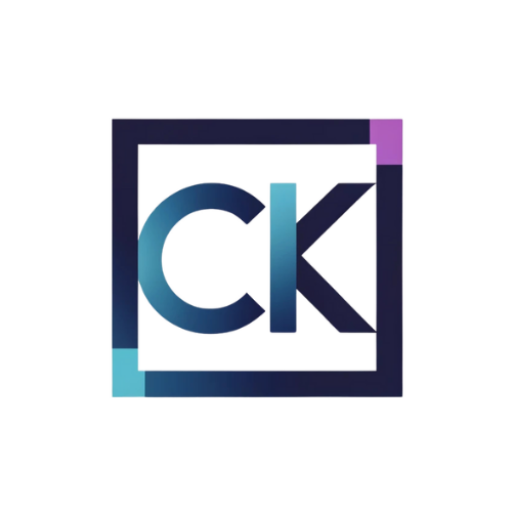Anúncios
In recent years, the concept of personal branding has gained considerable traction, particularly within the realms of job searching and resume writing. This evolving practice involves marketing oneself and one’s career as a brand, thereby creating an identity that stands out. At its core, personal branding is about highlighting unique skills, attributes, and experiences to establish a memorable professional persona that resonates with potential employers. As the job market continues to grow increasingly competitive, it becomes essential for candidates to effectively distinguish themselves. Personal branding through meticulously crafted resumes has thus emerged as an indispensable tool in achieving this objective.
Understanding the significance of personal branding can greatly influence how recruiters perceive candidates during the hiring process. A strong personal brand not only showcases a professional’s strengths but also enables them to communicate their unique value proposition. This communication goes beyond merely presenting a list of responsibilities and tasks that have been performed in previous jobs. Instead, a powerful personal brand encapsulates what candidates bring to a position, enhancing their overall appeal. Crafting a resume that emphasizes personal branding enables job seekers to start their search on a strong footing, effectively setting them apart from other applicants.
To utilize personal branding effectively in resume writing, candidates should begin with thorough self-reflection. This introspective process entails identifying core values, strengths, passions, and life experiences that collectively shape one’s professional identity. Candidates must engage in candid self-assessment and consider questions that provoke thought: What unique skills do they possess? Which values hold significant importance to them? How can their diverse experiences contribute meaningfully to potential employers? This phase of introspection allows job seekers to construct a cohesive narrative that illustrates not just their professional experience but also their authentic selves.
Once candidates have attained a clear understanding of their personal brand, they can commence the work of incorporating this insight into their resumes. The key to success in this endeavor lies in weaving the narrative of their brand through every section of the document. It begins with crafting a strong personal statement or summary that succinctly encapsulates who they are and what they have to offer. Striking the right balance between brevity and depth in this statement is crucial; it should effectively paint a vivid picture of the candidate’s professional persona while reflecting their unique achievements and personal values.
In the experience section of the resume, the essence of personal branding lies in the ability to highlight achievements rather than merely listing responsibilities. Candidates should focus on the tangible results they have achieved and the positive impacts their work has had on previous employers. Incorporating quantifiable metrics wherever feasible can significantly bolster this section of the resume. For instance, instead of stating “managed a team,” a more compelling approach would be to articulate it as “led a team of five to achieve a 20% increase in sales over one year.” This strategy not only conveys the candidate’s role but also aligns seamlessly with a brand message centered on being results-oriented and impactful.
Anúncios
Beyond work experience, education should also reflect the nuances of personal branding. Including relevant accolades, certifications, or notable projects can provide valuable insight into the candidate’s commitment to personal and professional growth. Additionally, candidates might consider incorporating relevant courses, especially those that align with their personal brand narrative. For instance, a candidate who emphasizes innovation and creativity might include coursework specific to design or creative problem-solving. This reinforces their brand message and showcases ongoing dedication to their field, illustrating that they are not only rooted in experience but also committed to continuous learning.
Another vital component of personal branding within a resume is the thoughtful inclusion of skills. Candidates must prioritize skills that not only relate directly to the job they are pursuing but also resonate with their personal brand messaging. For instance, if a candidate’s brand emphasizes leadership, collaboration, and interpersonal skills in tandem with job-specific technical abilities, creating a well-rounded view of their capabilities becomes imperative. This strategic alignment between demonstrated skills and personal brand significantly strengthens the overall appeal of the resume, enhancing the candidate’s positioning in the competitive job market.
Visual elements play a crucial role in enhancing personal branding within resumes. The design choices made in creating a resume should harmoniously reflect the candidate’s personal style while maintaining utmost professionalism. Utilizing color palettes, typography, and layout in a cohesive manner can help convey personality and creativity without sacrificing clarity. A resume that is not only visually appealing but also easy to navigate can leave a lasting positive impression on hiring managers, facilitating the quick consumption of key information on the document.
Moreover, networking and maintaining a strong career presence should not be overlooked in any discussion centered on personal branding. Candidates should consistently engage on professional platforms such as LinkedIn to reinforce and promote their brand effectively. A well-maintained online profile that mirrors the messaging of the resume is essential, showcasing achievements and underlining the candidate’s role as a thought leader within their industry. Being active on these platforms can considerably increase visibility, widen professional connections, and create additional opportunities for growth in one’s career.
Furthermore, personal branding is not confined solely to resumes and LinkedIn profiles. Candidates must also consider their social media presence as an integral component of their overall brand. It is of utmost importance that candidates ensure their online conduct aligns positively with their projected professional image. Given that employers frequently conduct favorable reviews of candidates’ social media profiles, curating content that reflects a constructive brand identity becomes critical. This can involve sharing relevant articles from the industry, engaging in professional discussions, and showcasing expertise and interests that amplify their personal brand narrative.
The power of storytelling in personal branding should never be underestimated. Employers tend to appreciate authentic narratives that effectively convey passion, ambition, and motivation. Candidates can leverage their resumes to tell a compelling professional story, linking various experiences to highlight pivotal turning points in their career journey. This cohesive narrative flow can resonate with hiring managers, providing an engaging glimpse into a candidate’s professional life, and establishing an emotional connection that fosters genuine interest.
Feedback plays an invaluable role in refining personal branding and enhancing the associated resume. Candidates should actively seek input from trusted colleagues, mentors, or professional resume writers to gain insight into how their personal brands are perceived by others. Constructive feedback can illuminate areas of strengths to emphasize as well as weaknesses that require attention. This form of external evaluation enables candidates to ensure that their personal brand resonates as intended and effectively communicates their value proposition in the job market.
In addition, adapting personal branding according to the expectations of specific industries is of paramount importance. Different sectors may harbor distinct standards regarding style, tone, and content presentation. For example, tech resumes often favor minimalist designs that emphasize skills and accomplishments, while more creative fields may encourage bolder visuals and unique layouts. Understanding the nuances and expectations of one’s specific industry is critical in crafting a personal brand that aligns harmoniously with prevailing norms and industry standards.
As the job market continues to evolve at a rapid pace, candidates must remain prepared to adapt their personal branding approach as required. Staying abreast of industry trends, technological advancements, and changing employer expectations allows candidates to pivot their brand message when necessary. Engaging in continuous learning and consistently updating relevant skills ensures candidates remain engagingly relevant. This adaptability in personal branding can lead to increased job security and greater opportunities as candidates become known for their ability to present themselves as lifelong learners and progressive professionals.
In conclusion, personal branding stands out as a highly influential tool in the context of resume creation and job searching. It empowers candidates to forge a professional identity that resonates deeply with potential employers, distinguishing them in the crowded marketplace. By understanding their unique value propositions, incorporating personal branding into each section of their resumes, and maintaining a keen awareness of the expectations characteristic of their industries, candidates can significantly strengthen their positioning as top contenders for coveted job opportunities. Additionally, proactive networking, maintaining current personal narratives, and embracing adaptability ensure that personal branding remains an effective strategy throughout one’s career journey. Embracing this holistic approach can lead not only to successful job searches but also to fulfilling career trajectories dedicated to ongoing personal and professional growth.



